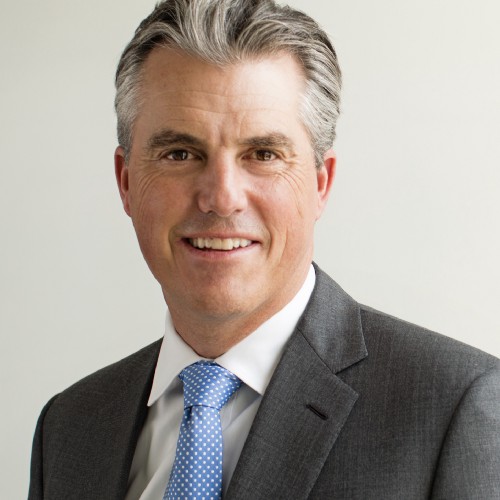Imagine a company that looked at you and said, “We know you’re having issues with our service network, but we can’t fix it for you. Here are a few tools, but only a small fraction of our team is aware of them, and we can’t guarantee that these solutions will work because most of our employees are untrained in how to use them. Good luck fixing the problem that we created. If you call our support line, there’s a 90% chance you’ll be told that you’ve imagined the problem and that everything is actually fine.” You’d be outraged, and rightfully so.
Now, take that scenario and apply it to racial, cultural, and gender bias found in the workplace and job market. Not only do women and people of color face untold challenges in getting hired and promoted across all industries, but we put the impetus to fix these problems squarely on their shoulders. Here’s a quick overview of a few of the hurdles they face.
First, they have to spend a ton of time and energy convincing everyone else that the problem exists.
Next, they have to argue with those who remain unconvinced and are shouting over them, trying to drown them out and distract from the issue. It seems pointless, but due to the dangers of false equivalence and the fact that the loudest voices spread furthest, they have no choice.
They spend months (sometimes years) designing solutions and programs, including deliberate diversification and representation, mentorship, restructuring performance review and hiring practices, flexible schedules, etc. only to see lukewarm adoption rates that peter out after a year or two.
They decide to seek a new opportunity in a different industry or company and have to start the process all over again, with no guarantee of success.
Rinse and repeat.
Without stronger allies who speak up without being asked, who argue fiercely and tirelessly in favor of equality, and who refuse to burden the already marginalized with that emotional and mental load, we can’t make significant progress towards equality in business (or in life).
It is not the responsibility of the oppressed to educate the oppressor. If you’re in a position of power and privilege, it’s your responsibility to break down barriers, root out bias, and change the narrative for the better. Corporations have been playing “kick the can” with problems of diversity and bias for far too long, denying their responsibility and agency by claiming a lack of qualified applicants or that their company is sufficiently diverse—it’s others who have the problem.
There’s no standard roadmap for success, but with so many innovative and groundbreaking leaders out there, that isn’t a barrier—it’s an opportunity. As the founder and former CEO of Bluewolf, a large technology consulting firm, I struggled with diversity and fair representation daily. It’s not enough to establish an annual diversity workshop or host a few women in tech panels. Increasing the number of women and people of color in business, technology, and the C-suite requires a sustained, multi-level effort across every aspect of business, from informal conversations to annual reviews and promotions.
The biggest problem that I experience in boardrooms is how many business leaders hear about these problems but don’t make an effort to educate themselves on how and why the problems exist. It’s easy to ignore bias when you and your peers don’t experience it on a daily basis, when it’s a series of data points on the last slide in the appendix rather than the hollowing, gut-wrenching blow of being passed over for promotion for the third time or the forced, awkward laugh deflecting a blatantly sexist comment disguised as a joke.
Everyday instances of bias and inequality are often mundane, so easy to ignore that we brush them off without a second thought. No women in the meeting? We’ll invite them next time. Or, “Can I speak with your boss?” when addressing leaders of color.
Small things matter; they build upon each other to create a subtly oppressive atmosphere, one that can be so hard to detect that many people feel comfortable saying it doesn’t exist. Grand gestures get a lot of positive attention, but it’s the sustained effort every day to combat inequality that will effect real change. For example, one of the commitments I’ve made is an effort to avoid using the phrase “Hey guys” when referring to a group of men and women, substituting “Hey everyone” or “Hey folks” to be more inclusive. It’s a small gesture, but an important one as we work to change inherent and inherited biases in business and tech.
A fundamental rule in business is that you need to fully understand the problem before designing a solution. Corporate America won’t find viable solutions to combat systemic bias until the people in power abandon their willful ignorance and learn about the history and the sustained, far-reaching effects of bias, racism, and sexism in America. So, I’m issuing a challenge to my fellow leaders: how will you educate yourself to become a better advocate and chip away at the foundational power structures that keep a significant portion of our workforce and national community at a disadvantage?
Don’t stay silent, don’t remain ignorant—be a force for good. If you’re wondering where to begin, here are a few suggestions:
Stamped from the Beginning: The Definitive History of Racist Ideas in America by Ibram X. Kendi
So You Want To Talk About Race by Ijeoma Oluo
The Future Is Feminist: Radical, Funny, and Inspiring Writing by Women edited by Mallory Farrugia, Introduction by Jessica Valenti
We Should All Be Feminists by Chimamanda Ngozi Adichie
Moving Beyond Words: Age, Rage, Sex, Power, Money, Muscles: Breaking Boundaries of Gender by Gloria Steinem
We’re about to enter a new decade. How are you going to prepare in the here-and-now to productively engage in building a better, more equal future?


